How to finish a basement if there is moisture on the concrete walls?
Hello,
I am wanting to finish my basement. The basement is fairly dry, I have never seen water down there and the walls only get a little wet if the horizontal piece of the downspout that diverts water away from the house falls off. Occasionally in the spring when the snow melts the block wall gets a little damp in certain places. The house was built in 1992.
I tested for moisture in the basement by putting some EPS foam on the wall and sealed it, then checked a couple days later to find the block behind the foam was damp. Is this normal or should I attempt to fix that condensation issue before insulating the wall? My plan is to insulate with 2" EPS foam glueing it to the walls with foam board caulk and spray foaming the seams.
The wall will be 2x4 pressed against the EPS, the bottom plate will be green treated with a foam sill seal. The space between the joists will also be 2" EPS foam and all the seals will be spray foamed to form a tight barrier between the concrete and the interior. The stud walls will be insulated with unfaced insulation and then drywalled and painted. I know there will be moisture between the concrete block and the EPS. Is this bad or a normal part of this design? There is a drain tile that runs into the sump in the basement, only time it runs is a trickle in the spring.
I do not believe the exterior block wall has been protected with a waterproof membrane or foam. If I needed to add something to the exterior, what would you recommend?
Thanks for your time and help,
Steve




















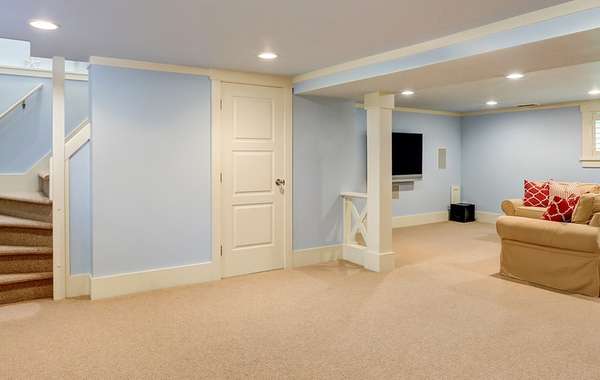
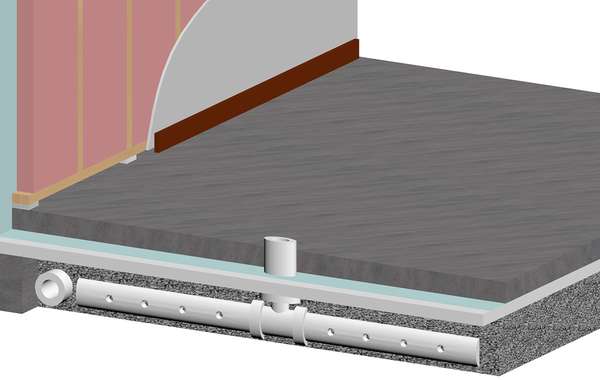
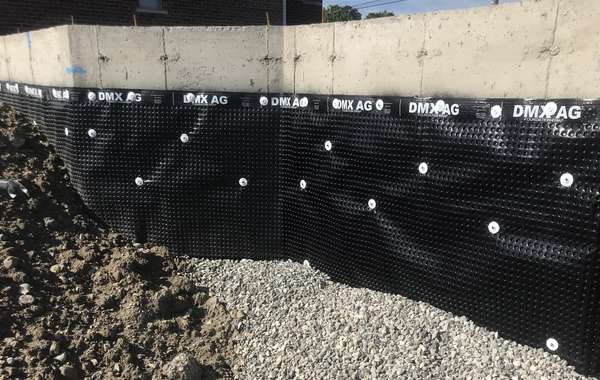
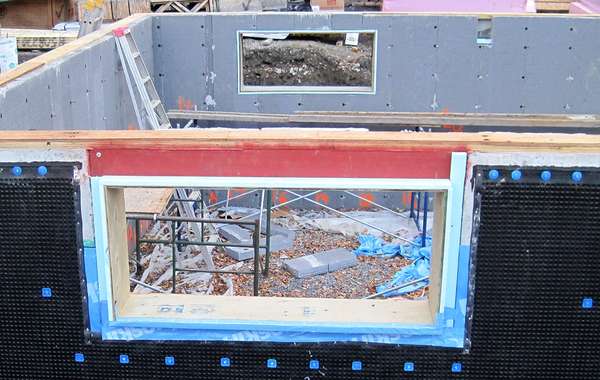
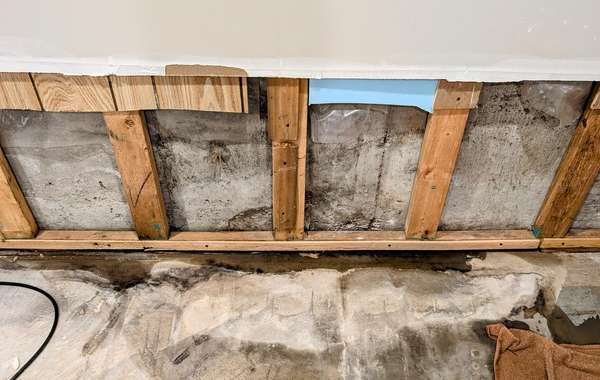


In almost all cases with traditional basement construction, the concrete will stay at least slightly wet for ever. The same goes for block walls, and this is to be expected. The reason is actually an unfortunate oversight in that footings are almost never protected from moisture in our collective experience. And since concrete is porous it will always absorb moisture from the ground and find it’s way up the walls.
That’s just physics that can’t be avoided – the laws of thermodynamics and entropy are such that ‘stuff’ wants to go where there is less ‘stuff’. Heat moves to cold places, and moisture moves to dry places. The world likes to balance itself out, we as humans have to acknowledge and work with that reality. So don't worry about wet walls behind the EPS, it's causing no harm.
The attention and due diligence you are applying is great, and I think your solutions will work. If you have not already seen our pages on basement improvements, here are a couple good ones to start with –
It sounds like you are protecting your stud wall from the wet concrete on the walls and below from the floor. So as long as you don’t put on a poly vapor barrier, then your walls will be able to dry to the interior and that moisture will be easily handled either by your ventilation system if you have one, and if not get a properly-sized dehumidifier and have it set to 50%RH I think you’ll be good.
Keeping basements protected from ground water is another story, that may require eavestroughs or drainage, if that's an issue as well let us know and we will try to help.